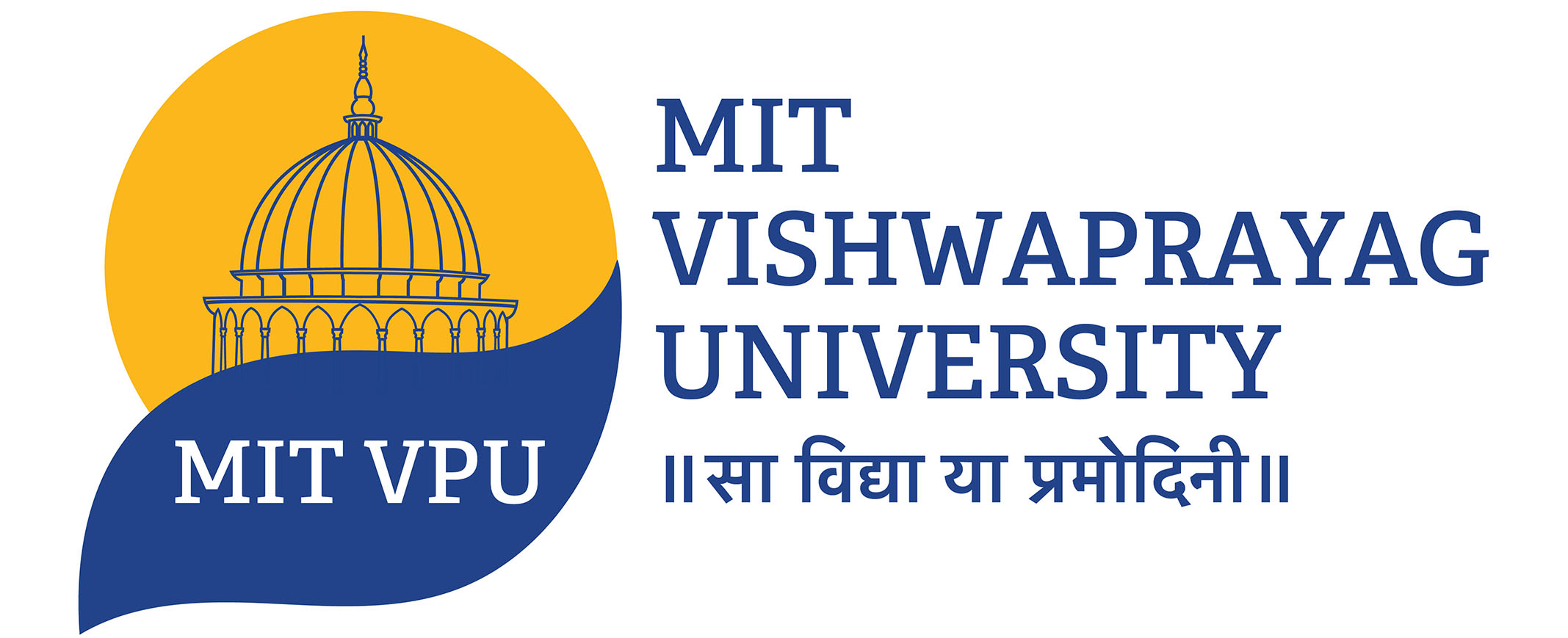Why MBA after Engineering: Exploring the Benefits
Published on : N/A
Engineering graduates are often faced with the question of what next after graduating with a degree in engineering. Several students lean towards pursuing an MBA post their engineering degree. In this blog, we will delve deeper into why MBA after engineering is a trend on the rise and explore the benefits that come along with it. An MBA can help expand career horizons, enhance managerial and leadership skills, unlock entrepreneurial potential, offer higher salary packages and job security, and provide global recognition and mobility. Moreover, we will also examine some of the best MBA specializations for engineers and understand how an MBA adds value to an engineer’s skill set. Lastly, we will introduce MIT Vishwaprayag University’s world-class MBA program and explain why it could be your gateway to quality jobs and internships. Read on to explore the benefits of pursuing an MBA post-engineering and take the first step towards a rewarding career.
Unpacking the Trend: MBA after Engineering
The increasing popularity of pursuing an MBA after engineering can be attributed to several factors. Engineering graduates have recognized the benefits of combining their technical skills with management expertise. An MBA provides them with a broader skill set, including management, communication, and time management skills. It opens up various career opportunities, both in India and abroad. With an MBA, engineering graduates can climb the corporate ladder and take on visionary roles in areas such as human resource management, product management, international business, and more. Pursuing an MBA after engineering is a good option for those looking to expand their career prospects and step out of their comfort zone.
1) Why Engineering Graduates Lean Towards MBA
- Engineering graduates are increasingly inclined towards pursuing an MBA, and there are several reasons for this.
- An MBA complements the technical skills acquired during engineering, allowing graduates to combine their expertise with managerial skills.
- This combination opens up new career paths and enhances job prospects.
- Additionally, an MBA equips engineering graduates with essential management skills, such as communication, time management, and team spirit, which are valuable in today’s corporate environment.
- Furthermore, pursuing an MBA provides opportunities for personal and professional growth, making it a good option for those seeking visionary roles and top managerial posts.
2) Comparing MBA and MTech for Engineers
- Engineers often find themselves at a crossroads between pursuing an MBA or an MTech when considering career prospects and growth opportunities. Both paths have their benefits and drawbacks.
- An MBA develops management skills and opens up visionary roles in fields like human resource management and product management.
- On the other hand, an MTech focuses on technical expertise, making it a good option for those interested in software engineering or research.
- It’s important to evaluate the differences in skill sets, industry relevance, and the impact on salary potential before making the right choice.
Delving into the Benefits of an MBA Post-Engineering
An MBA after engineering offers numerous advantages and benefits that can greatly enhance career prospects. By complementing an engineering background with management skills, engineers gain a competitive edge in the corporate environment. An MBA develops leadership abilities, communication skills, and time management. It opens doors to top managerial posts, visionary roles, and entrepreneurial opportunities. Additionally, an MBA provides industry recognition, job growth potential, and the option to work in foreign countries. This transformative post-graduate degree expands career horizons and propels engineers up the corporate ladder.
1) Expanding Career Horizons and Opportunities
- An MBA after engineering can open up a wide range of career options for graduates.
- It provides the opportunity to work in diverse industries and sectors that value both engineering and managerial skills.
- With an MBA, engineers can explore interdisciplinary roles that require a blend of technical and business expertise.
- Additionally, an MBA equips engineers with the ability to adapt to evolving job market trends and demands, ensuring they stay competitive in their careers.
- Moreover, pursuing an MBA offers global career opportunities beyond boundaries.
2) Enhancing Managerial and Leadership Skills
- An MBA offers engineers the opportunity to enhance their managerial and leadership skills.
- Graduates can analyze the impact of an MBA on their ability to take on managerial roles and develop essential soft skills, such as communication and problem-solving.
- The importance of teamwork and collaboration in managerial positions is highlighted, along with the role of an MBA in developing strategic thinking and decision-making abilities.
- This comprehensive skill set equips engineers to excel in visionary roles and climb the corporate ladder.
3) Unlocking Entrepreneurial Potential
- Engineering graduates who pursue an MBA can unlock their entrepreneurial potential.
- An MBA program develops business acumen and entrepreneurial skills, enabling graduates to create and manage successful startups.
- Additionally, aspiring entrepreneurs gain access to a valuable network and resources through an MBA program.
- This fosters the ability to identify and capitalize on business opportunities.
- However, critics argue that an excessive emphasis on discipline may stifle creativity and individuality.
- By combining technical knowledge with management expertise, engineering graduates can confidently navigate the corporate environment and build visionary roles as entrepreneurs or in top managerial posts.
4) Potential for Higher Salary and Job Security
- With an MBA after engineering, you can explore the potential for higher salary and job security.
- The impact of an MBA on salary growth and earning potential for engineers is analyzed, highlighting the competitive edge it provides in the job market.
- The demand for professionals with both technical and managerial expertise is emphasized, as an MBA can increase job security.
- Additionally, an MBA can help negotiate better compensation packages, making it a good option in terms of financial stability and long-term career prospects.
5) Global Recognition and Mobility
- An MBA increases career prospects and job opportunities on an international scale, allowing engineers to adapt to multicultural work environments.
- Moreover, an MBA provides a network of connections for global career advancement.
- Additionally, engineers with an MBA can also explore visa and immigration opportunities in foreign countries.
- With the right mix of technical and managerial skills, an MBA serves as a gateway to top managerial posts, offering the chance to work in visionary roles across various industries.
6) Networking Opportunities with Industry Experts
- Building connections with professionals can provide advantages like access to job opportunities and industry insights.
- Alumni networks play a crucial role in career growth and job placement, offering mentorship and guidance from experienced professionals.
- These connections can also open doors to visionary roles and top managerial posts.
- By leveraging networking opportunities, engineering graduates can enhance their management and communication skills and gain valuable insights into corporate environments.
- This can be particularly beneficial for those looking to explore international business or entrepreneurial ventures.
Exploring the Best MBA Specializations for Engineers
When it comes to exploring the best MBA specializations for engineers, there is a range of options to consider. By taking into account your engineering background and interests, you can find the perfect fit that aligns with your goals. It’s important to discover the top MBA specializations in demand in the corporate world and leverage your technical expertise through specialized programs. This will expand your career options and open doors to visionary roles in management, marketing strategies, international business, and more. With an MBA specialization aligned to your engineering degree, you can take on top managerial posts and unlock your full potential in the corporate environment.
1) MBA in Finance
- Gain expertise in financial management and analysis, honing your skills for strategic investment decision-making.
- Explore diverse career opportunities in investment banking and corporate finance, leveraging your enhanced understanding of financial markets and risk management.
- An MBA in finance opens up exciting prospects for visionary roles in top managerial posts.
- With an MBA in finance, you can embark on a successful career in foreign countries or renowned companies like Infosys or Google.
2) MBA in Information Technology
- Acquiring management skills is essential for effectively leading IT projects and teams.
- An MBA in Information Technology equips you with the expertise to align technology solutions with business objectives, making you a valuable asset in the corporate world.
- This specialization opens up lucrative career options in IT consulting and technology leadership roles, where you can explore emerging technologies and understand their impact on businesses.
- By bridging the gap between technical and managerial domains, an MBA in IT propels your career towards visionary roles and top managerial posts.
3) MBA in Operations Management
- Master the art of optimizing business operations and supply chain management with an MBA in Operations Management.
- Develop skills in process improvement and efficiency enhancement, allowing you to excel in operations leadership.
- This specialization opens up exciting career opportunities in logistics, manufacturing, and operations consulting.
- You’ll also learn to manage complex projects and coordinate cross-functional teams.
How does an MBA add value to an Engineer’s Skillset?
Discover how an MBA enhances an engineer’s skill set. Gain a broader perspective on business strategy and market dynamics, develop communication and leadership skills, and strengthen problem-solving abilities. Combine technical expertise with managerial acumen for career growth.
1) Bridging the Gap: Technical and Managerial Skills
- Developing technical and managerial skills is crucial for bridging the gap between engineering and business.
- It involves effectively communicating technical concepts to non-technical stakeholders, understanding the business environment’s impact on engineering projects, and acquiring project management and team leadership abilities.
- By harnessing technical expertise, one can drive innovation and solve real-world problems.
- An MBA serves as a platform to acquire these skills and bridge the gap, enabling engineers to take on visionary roles and climb the corporate ladder.
2) From Problem-Solving to Decision-Making: A Shift in Perspective
- As an engineer, transitioning from a focus on technical problem-solving to strategic decision-making is crucial.
- Pursuing an MBA after engineering allows you to develop a broader understanding of business challenges and opportunities.
- Through this program, you can learn to evaluate risks and make informed decisions in complex situations.
- Enhancing your ability to think critically and analyze business scenarios empowers you to take on leadership roles and drive organizational success.
- This shift in perspective equips you with the skills and confidence to navigate the corporate environment and ascend the corporate ladder.
MBA after Engineering: A Gateway to Quality Jobs & Internships
An MBA after Engineering can open doors to high-quality job opportunities, giving you a competitive edge in the corporate world. With an MBA, you gain access to prestigious internships that can kickstart your career and provide valuable industry experience. Networking with industry professionals and alumni can also pave the way for career growth and mentorship. By combining engineering and managerial skills, you stand out from the competition and have the flexibility to explore diverse career paths and industries. The MBA acts as a gateway to quality jobs and internships, offering numerous possibilities for success.
1) Landing Rewarding Packages: An Insight into Salary Trends
- When it comes to the earning potential for MBA graduates, salary trends can provide valuable insights.
- By pursuing an MBA after engineering, individuals can significantly increase their earning potential.
- Combining engineering and business expertise opens up financial benefits and opportunities for higher pay scales.
- Different MBA specializations offer varying average salary ranges, allowing individuals to position themselves for rewarding compensation packages.
- This not only sets them on the path to landing lucrative job offers but also gives them the potential to climb the corporate ladder and secure top managerial posts.
2) What is the scope of MBA after Engineering in terms of job prospects?
- Explore the wide range of job opportunities for MBA graduates with an engineering background.
- From managerial roles in engineering firms to positions in consulting, finance, marketing, and operations management, an MBA can open doors to diverse industries and pave the way for leadership roles and career growth.
- Leverage your engineering education and MBA to secure your dream job.
MIT Vishwaprayag University: A World-Class MBA Experience
Pursue an MBA at MIT Vishwaprayag University for a world-class education in business management. Enhance your technical expertise with an MBA from MIT Vishwaprayag University. Develop your managerial skills through the MBA program at MIT Vishwaprayag University. Explore specialized career paths with an MBA degree from MIT Vishwaprayag University.
1) Unique Selling Points of MIT Vishwaprayag’s MBA Program
- One of the unique selling points of MIT Vishwaprayag’s MBA program is the opportunity to benefit from real-world experience.
- The program provides students with hands-on learning experiences that bridge the gap between theory and practice.
Conclusion
Recent post

AI's Impact on EdTech: Disrupting Education for the Better
N/A



The Role of Cybersecurity Courses in 2024: Building a Resilient Digital Society
N/A